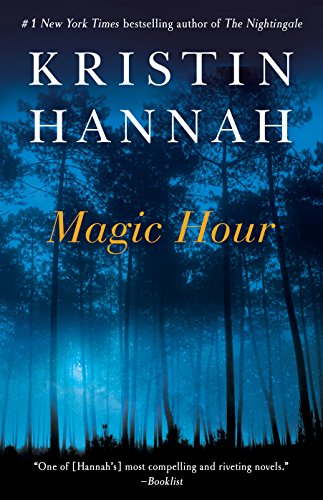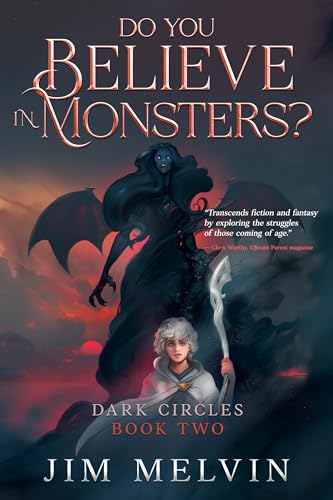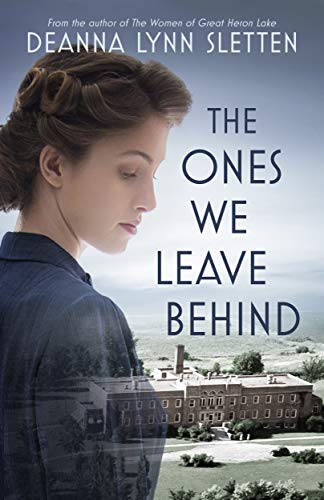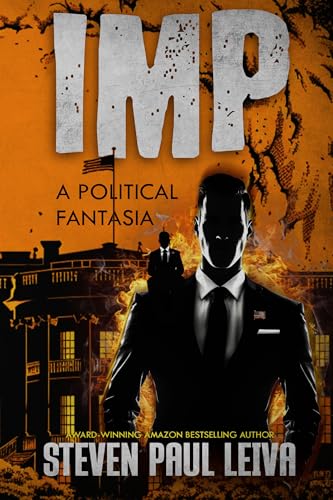On Friday we announced that P. J. Lee’s The Flies of August is our Thriller of the Week and the sponsor of thousands of great bargains in the thriller, mystery, and suspense categories: over 200 free titles, over 600 quality 99-centers, and thousands more that you can read for free through the Kindle Lending Library if you have Amazon Prime!
Now we’re back to offer our weekly free Thriller excerpt:
When a wealthy insurance executive is gutted with a garden tool amid his rhododendrons, a quiet Connecticut town bursts into the public eye. Rookie detective Donna Bradley, snubbed from the high-profile case, is saddled with an unrelated search for a teenage runaway. The girl’s parents—a beaten-down father mired in debt and an ailing mother—are mysteriously evasive. A reclusive Englishman seems to have an unhealthy interest in the girl.
As the town’s startling secrets are uncovered, Donna’s search for a killer becomes a search for herself, as the pressures of the investigation tear away her defenses.
“The Flies of August” unfolds through one hot, harrowing summer as the American recession drives rich and poor alike to desperate measures.
And here, for your reading pleasure, is our free excerpt:
The Flies of August
Miller
He likes to be first out in the morning while the day is still pristine. Bella lopes ahead down the bank to the tall trees near the playground. She’s a Weimaraner, gray ghost of a hunting dog, nose to the scent trail at a fast trot, freezing if she sees squirrels on the ground. Miller never tires of watching her patient stalking approach to the squirrels—head, body and tail making a perfect horizontal line. The soft sides of her mouth billow slightly as she blows air across her tongue to taste it.
They cut across the springy surface of the kids’ playground near the school buildings to the third field. At the furthest perimeter is a dense barrier of trees, shrubbery and shabby fencing that separates the public grounds from surrounding housing. In the summer months teenagers use the grounds after dark, producing a jetsam of shot-gunned Keystone beer cans, smoking paraphernalia, condom wrappers, even female underwear misplaced in haste.
Other dog walkers arrive soon after, but Miller and Bella are always the earliest in the morning. First to press a boot onto the tender ice forming on the puddles under the trees when November’s winds freeze them, first footprints in a fresh overnight snowfall, first to see the spring sunrise streaked with jet-trails out.
Starting each day in Bella’s world is one of the survival techniques he has developed, small schemes to get through the days. He has learned to be functional—to continue to eat and work and pay his bills. But there’s no hiding. He can be anywhere—walking here at the park, or sliding his credit card at the supermarket till, or lost in a television program, and suddenly everything in his world will be abruptly displaced by the vivid, recurring images in his memory. He thought they would fade, but they haven’t. The stillness of her body on the ground. The brief, small sound, like her last breath passing through her lips, which he now thinks of as the moment her soul left her body, even though he has no religion. Because after that moment there seems to be a loss of tension in her body that conveys to him the absence of life. Rationally, he knows it couldn’t have been that way, but that’s what he remembers. That’s what he carries with him.
DAY ONE
Tuesday. 8 a.m.
A senior law enforcement officer should not color his hair. That should be a rule. It undermines the whole command structure. My opinion. But the chief of the Webster Police Department is big on appearances and leadership buzzwords and public relations. I’m looking at his desk and it is clean of anything that looks like police work. This is my first time ever in his office, and it’s just me, the Chief, and Captain Donald, head of detectives. That means something’s up.
“Donna, you know about this missing teenager?” asks Captain Donald. He’s a lean man with hooded eyes and a permanently skeptical expression. I always feel like anything he asks me is going to be a trick question.
“Yes, sir. I saw it on the car computer coming in.”
“You’re going to take a look at it.”
“Yes, sir.”
The chief is looking on with a benign, chiefly smile on that scrubbed schoolboy complexion that makes him look younger than he is. He remains seated behind his desk, possibly because he knows I’m taller than he is.
“Get over and talk to the parents right away,” Captain Donald continues. “Let’s be seen as proactive.”
“Yes, sir.”
“I’ve teamed you with di Giorgio. He’s got more years than you but he’s still on probation in this department, so you’re the lead.”
I can’t go on saying “yes, sir,” so I just nod.
“Donna,” the chief chimes in, “extra credit if it’s all sorted out without the media ever hearing about it.” He smiles at me. “Under the circumstances.”
The whole thing might be taking place in a high school principal’s office. I give him the smile he requires and I’m out of there.
My first time in charge of a case. It’s true that I have been waiting too long for this. It’s also true that I am the only female detective in the department. I couldn’t go to a jury with proof these two facts are connected, but I’m not looking for other suspects. Call me cynical, but I know I’ve only caught this case because the chief needs everyone he trusts to be working on the other case—the one that has become the most public murder case here in twenty years.
Until last week, Webster, Connecticut, was a little sanctuary, a regular on those internet charts of the best towns to live in America. That’s Noah Webster of the Webster’s dictionary everyone used in school—distinguished early resident of these parts.
Saturday afternoon last week, a Webster taxpayer was killed in his own back yard. Not just any taxpayer. Nathan Weisz was chairman and CEO of ConCare, one of the largest medical insurance companies in the United States. An extremely wealthy man and, by all accounts, a model citizen. Three hundred people attended his funeral and the Hartford Courant devoted a memorial page to his many charitable activities.
That alone is enough to make it big. But the wildfire of curiosity and speculation was lit when we declined to give details about how he died. In my view that was a blunder—there is nothing like an evasive press conference for making things worse than they seem—but I can understand why the chief made that call. Mr. Weisz was in the landscaped garden of his McMansion on this hot afternoon, clearing the crabgrass from around his rhododendrons. He was using one of those tools designed for senior gardeners with back problems, with a long handle so you don’t have to bend down; four angled steel spikes in a circle at the end, and something like bicycle handlebars at the top. You rotate the handlebars and the spikes at the bottom turn in a circle and rip up weeds and roots. You can really get some torque into that rotation with your shoulders. The killer was able to remove most of Nathan Weisz’s small bowel with a couple of twists. In the opinion of the Chief Medical Officer, Mr. Weisz was alive when this happened.
The Webster Police Department was mobilized like never before, but so far we do not have an arrest. Every morning, the tension in the department is pitched a little higher. Out-of-state media are sniffing around. It can’t be long before the murmurs start that the Webster PD isn’t up to this one. It’s not that we’re short of resources. On the contrary, you dial 911 in Webster for a robbery in progress, you’ll get four squad cars in six minutes. When it comes to pouncing on skateboarders and joyriders, Webster PD has no equal. But this is a soft town of middle-class obedience with a thick topping of well-paid executives, families who don’t need loans for college, divorced spouses living comfortably on alimony, retirees who planned well. Lawn care is probably bigger business than law enforcement in Webster. We get maybe ten suspicious deaths a year and those are mostly alcohol-related and domestics in the southeast fringes of the town.
Suspect number one for the murder of citizen Weisz is an undocumented named Jorge, no known last name, mid-20s, who was working for the landscaping service that regularly tended the Weisz property. A week prior, Jorge was blowing off the deck around the pool when Weisz’s fourteen–year–old daughter Abby stepped out of the French doors in a bikini. That evening, Mr. Weisz phoned Luis Hernandez, owner of the landscaping firm, and told him that his contract was terminated because Jorge had made indecent propositions to Abby. Which is how come Mr. Weisz was obliged to be rooting out his own crabgrass on a Saturday afternoon. Hernandez told the detectives that he had fired Jorge immediately after receiving Weisz’s call. He had no records for Jorge, not even an address. Hernandez had found Jorge outside the bus station, where casual laborers meet casual employers. Hernandez himself proved to have an air-tight alibi, a green card, a current mortgage on a well-kept little house and a cooperative demeanor which survived a five-hour interrogation.
Jorge as the doer is such a neat outcome for the department and the town that he has basically been tried and found guilty in absentia, all we have to do is find the bastard. It’s so thick-headed.
First off, I don’t like that our entire theory of the case hinges on the testimony of the fourteen-year–old daughter and I’m furious that they didn’t give me the job of interviewing her. I’m the female detective, right? I could have got inside her head. But in their wisdom they sent Ralph Generis and Sam “Beanbag” Paterniakis. The former is a competent investigator but no Sigmund Freud, and the latter got his nickname from twice using a beanbag round to bring down citizens he deemed to be a threat to themselves or others. Making him detective was a public safety measure. These two guys came away from interviewing the daughter repeating exactly what she had originally told her father. Lovely girl, they said. So we believe that a young man struggles his way illegally from Mexico to Connecticut, gets a job in the middle of a recession, and then throws it all away by offering to rub suntan lotion on a fourteen-year-old? I don’t think so.
On the way to find Tony di Giorgio I stop at the ladies’ room, at the same time reprimanding myself for doing so. It’s a professional relationship, how I look shouldn’t have anything to do with it. Anyway, what’s there in the mirror is what’s always there: a five-foot-ten woman with strong shoulders and a nose that polite people call generous. Auburn hair cropped short and, in the summer, too many freckles. Drunks have told me my breasts are my best asset. Some of them have slept in the holding cell overnight as a consequence. I run my hands through my hair. This is not going to be easy. I’ve had nothing to do with Tony before, he only moved here last year from Kentucky. He’s at least ten years older than I am and an experienced homicide detective. In business, you can move from company to company and your resume proves that you can do the job here that you did there. But police departments don’t work like that. In a new place, you have to prove yourself all over again. So, despite his record, Tony started here driving a patrol car with a field trainer. He was a uniform on the street through last winter. He sucked it up, never complained, good for him. Now, I’m supposed to buy that he’s just coincidentally being elevated to detective? Suddenly? I don’t think so. He’s on the case to baby-sit me. I can see it, and everyone else in the department will see it.
“Hey, Tony,” I say when I find him in the squad room, “Captain’s teamed us.” Notice how I avoid implying my seniority; if I could work out why I do things like that, I could take a step forward in my life.
He stands up and extends his hand. “I’m looking forward to working with you.” His voice and his eyes are soft and un-cop-like. No taller than me. Wiry, like a long-distance runner. Prominent veins snaking across the back of his very tan hands.
I’m flustered as to how to start out with him, so I duck it. “Let’s begin by talking to the officer who took the report last night.”
Patrolman Ronnie Perez is not happy about having to wait for us since shift change.
“The guy comes in at one-thirty,” he says. “I thought he was a drunk at first. Very agitated.”
He shows us a copy of the report he took. “He is Stanislaw Zajac. His daughter is Amber Zajac. Sixteen. She walked out of their house on Wilton Lane at around seven p.m. Not answering her cell phone. She doesn’t have a car or a bicycle, she must have walked or been picked up. That’s all he had.”
“Did they have a fight, anything like that?” I ask.
“I asked him that, he started to shout at me, so I took that as a yes. Genius didn’t even have a photo of her.”
“Friends’ phone numbers, that sort of stuff?” asks Tony.
“All he brought was an attitude. I told him someone would come see him in the morning. My opinion? They had a fight, she’s gone to stay with a buddy, she’ll be back today when she thinks she’s scared them enough. If that was my old man, I’d be out of there too. Can I go home to bed now?”
We walk out of the building into the lot behind the station. Mid-nineties and a cloud cover that feels like it’s compressing the humid air. Some people handle this weather better than I do. Tony, for example, is wearing a sport coat to cover his weapon and seems completely comfortable. I always go for the golf shirt and lightweight khakis—disposable stuff—you never know what you can end up wading into before the day is over.
“Should I call you Donna?” he asks.
Momentary brain-mouth lapse. “I prefer Bradley with my co-workers. It eliminates the inferior female connotation…” Listen to me babbling. I should have thought about this beforehand, now I’m stuck here, fussing with my shield on my belt.
“Bradley’s good,” he says. “You want me to drive?” Holding out his hands for the keys.
“You uncomfortable with female drivers?”
“Nope. Just that the junior partner usually drives where I was before. Whatever suits you.”
I toss him the keys. “Actually I’ll probably scare you. I follow too close.”
“That’s normal for a woman.” This time he does smile. Which reminds me that the rumor is his wife took a walk. She must have had good reason, because it’s a killer smile.
11:30 a.m.
Amber Zajac lives on Wilton Lane on the east side of town, ten blocks from the Hartford line. The houses are all pretty uniform here, on standard plots, mid-price range, nothing special. There’s a For Sale By Owner sign outside the Zajacs’ house, but it’s not going to happen until they jack up the curb appeal. The house is overdue for a paint job and there’s a broken gutter. Rainwater from last night’s storm has washed dirt and mulch across the driveway where it’s now baking to a crust. There’s a battered truck with a contractor’s lockbox bolted into the back.
As we knock, the door is snatched open by a tall, wiry guy with sharp facial angles and stooped shoulders. Stanislaw Zajac introduces himself as “Stan” and leads us into a gloomy living room. They have the blinds pulled down on the east side of the house to keep out the morning sun, but the A/C unit in the window is not running. The room is pungent with air freshener and whatever odor it’s fighting.
“My wife’s coming,” he says, looking over his shoulder. “Rosemary!” He turns back to me. “Where have you been all morning, it’s nearly noon?”
“I understand your distress, Mr. Zajac,” I say. “I take it there’s been no contact from your daughter since last night?”
“No, of course not. We would have told you.”
“She has a cell phone?”
“Yes. It goes straight to voice mail.”
“Have you called everyone in the family?”
“Yes—and her friends.”
I’m seeing more of Zajac now. He has a long neck and his head is permanently shoved forward by his poor posture. It all gives him a look of a lanky bird looking for stuff to peck at. There’s a small smudge of dried blood or something at the corner of his thin mouth. A black dog wiggles into the room, dying to fling itself on us, but Zajac intercepts it and ushers it out; I get a clear image of it returning in the night to furtively pee on the carpet.
Rosemary Zajac comes into the room. She looks older than he does. Her hair is white and she’s pale-skinned and thin. No Botox in this Webster wife.
“Are you the ones looking for Amber?” No preliminaries.
“Yes, Mrs. Zajac. I’m Detective Bradley. This is Detective di Giorgio. Last night, after your report, the department issued a BOLO on Amber—”
“Be on the lookout for,” Tony chips in.
“—which went to the computer in every car in the department, and on the National Crime Information Computer. That means if any law enforcement agency or hospital logs her, we’ll immediately get an alert. We need a recent photo to add to that profile. We often get results from these.” Fluent lying is part of victim liaison. “Now we get some more detailed information from you, and on the basis of that we decide how to proceed.”
I pull out my notebook.
“You told the officer at the station that she left at seven last night?” Tony asks. They don’t answer immediately, which I first think is because Tony speaks so softly, but when I glance up from my notepad I catch them exchanging glances.
“Was there a disagreement or fight with Amber yesterday?” I look directly at the father.
Again there’s a hesitation, and now rising color in his cheeks. His wife steps in for him, “She wanted to stay at a friend’s house for a few days and we said no.”
“Why?” I ask.
“It’s not a friend we know.”
“I told her we would have to speak to the parents,” says the father. “But she said that would embarrass her. So we were worried there would be no adult supervision.”
“Some of the kids at that school, their parents have a lot of money and they give their children too much freedom,” Mrs. Zajac says.
“What school?” I ask.
“Wycroft. Out in Simsbury.”
Really? I can’t see these two having cocktails with the typical parents of a thirty grand a year prep school.
“So it was a big argument? Was there shouting or anything like that?”
“How does that matter?” snaps the father. Very reactive individual.
“I’m trying to establish, sir, Amber’s state of mind when she left here.” I switch my attention to the mother. “Have you got the name of this friend she wanted to stay with?”
She shakes her head. “We never got that far.”
“Are you certain Amber didn’t take anything that might indicate she expected to be away for a while? Clothes, money, laptop?”
“I assume she took her phone and purse because they’re not in her room. I can’t see anything missing from her closet. She doesn’t have a laptop. She uses the family computer in the study.”
“Does she have a credit card, ATM card?”
“Nothing like that.”
“Cash?”
“She gets money for waitressing at Hendricksen’s, the dairy bar place on Parkside Avenue. Two or three shifts a week usually.”
“When was she last there?”
“Saturday night till they closed at eleven.”
“Sunday night?”
“She was home,” Mr. Zajac answers.
“So, it’s possible that she could have just defied you and gone to stay at the friend’s house anyway?”
“Yes, it’s possible,” says the mother.
“Does Amber have any brothers or sisters?”
“An older brother, Kris. He’s working in California.”
“Any chance she would head out there to him? Did you call him?”
“She would not go to Kris,” the father says.
“We saw the For Sale sign outside,” says Tony. “Could Amber be upset about that? Moving the family can be stressful.”
“I just keep the sign out there in case someone comes with a good price,” Mr. Zajac says. “We’re not actively marketing it.”
The house phone rings and Stan Zajac spins around and snatches it off the wall.
“Hello!”
We all watch him in silence for a moment as he listens. Then he says “no” sharply and whacks the receiver back on the hook.
“Anything about Amber?” I ask.
“No.”
I keep looking at him.
“It’s not her!”
Tony deploys his quiet voice again, this time on me. “Why don’t you and Mrs. Zajac go and check Amber’s room? I’ll carry on here.” It’s standard practice to split up witnesses to prevent them from blending their recollections, but just for a moment I wonder if he’s coaching me.
On the way to Amber’s room I ask for a glass of water so that we route through more of the house. The kitchen is long overdue for a refresh. The dining room table is covered with papers and bills and a calculator. The house is more than big enough for three, but all the surfaces are cluttered with mail and magazines and knickknacks they regret bringing home but can’t toss out. There’s no A/C running anywhere and the humidity makes the handrail on the staircase feel sticky and grubby.
Amber’s room, by contrast, is too neat.
“Did you tidy this room, Mrs. Zajac? After she left? My room wasn’t like this when I was a teenager.”
“No. That’s how she keeps it.”
Bordering on unbelievable.
“Does Amber bring friends up here?”
Shake of the head. “When she was younger, yes. Before Wycroft. Not now. The school is quite a ride from here. She doesn’t really bring friends home.”
“Does she have a regular hangout?”
She’s lapsed into just staring at me, and suddenly I’m taking my first real inventory of her and realizing there may be more than anxiety going on here. She’s too thin—gaunt, even. The knuckles on her slim fingers are swollen and the skin on her elbows is dry and flaky. She might even smell a bit off, although the air in this house is so funky I can’t tell.
“Mrs. Zajac?”
“I don’t know. When she was younger she used to spend a lot of time at the library in Webster center. But everything’s changed since she went to high school.”
On the wall above Amber’s desk is a display board with ribbon crisscrossed on it so you can slip photos and old concert tickets and last year’s Valentine’s card in there. Just about every female American teenager has something like it.
“Is this Amber?” I’m looking at a snapshot of two kids, around twelve years old, arms entwined, hamming it up for the camera.
“Yes, but that was a few years ago.”
“Who’s this with her?”
“Catriona, her best friend. They met in elementary school.”
“You called her?”
“Of course. She said she hasn’t seen Amber for a few weeks.”
“Best friends, haven’t seen each other in the middle of summer? Where does she live?”
“Half a mile down the road.”
She sees I’ve written Katrina in my notebook and corrects me.
“The Irish spelling. Her father was Irish. He left. Her mother’s Hispanic, Riaz. She uses that name now. They’re good people.”
“Have you got a more recent photo of Amber we can use for the ID kit and posters?”
“Are you going to put posters up around town?”
“It’s one method we might use.”
She looks unhappy. “That’s so … public.”
“I understand, but we might need the public, Mrs. Zajac. May I ask, do you know if your daughter is sexually active?”
She actually blushes. “No, of course not.”
“No, you don’t know, or no, she isn’t?”
“I’m sure she isn’t. She’s only sixteen.”
“That makes her a legally consenting adult. Have you had those sorts of discussions with her? Contraception, safe sex, things like that?”
“We’re Catholic. And anyway … you’re here to find her, not to ask about her sex life.”
“It’s not a moral judgment, Mrs. Zajac. It’s just an investigative inquiry.”
“I can’t see how it’s relevant.”
“If she’s taken that step in the world, it means her boundaries are further out. The radius of things she might have gotten involved in.”
“That’s nonsense,” she snaps and walks out. Three seconds later, she’s back, her swollen fingers plucking at the flaky skin on her elbows. “I’m sorry! I’m just scared.”
“It’s okay, Mrs. Zajac. It’s natural for you to defend her.”
“Yes, but now I’ve behaved badly and I know that Stan lost control when he went up to the station last night. He’s very stressed—not just about Amber. His business is struggling since the recession. Please don’t let this affect what you do.”
“It’s okay, don’t worry.”
She sees my eyes on her hands and immediately stops picking at her elbows. “I’ll go and get that photo for you.”
I close the door behind her and conduct a swift search in all the usual places: under the mattress, under and behind drawers in the desk, under the clothes in her closet, in the pockets of the hoodies on hangers. Absolutely nothing. Teenage girls are like squirrels, there’s almost always stuff tucked away somewhere, but either Amber is the exception or she’s semi-pro grade. I always carry a pocket camera with me. Other detectives have laughed at me for it, but sometimes I find it hard to remember simple things—was there a phone on the table or not, stuff like that. I take a series of shots of the room with the closet doors open. I shoot the pencil holder on her desk, the colorful cheap jewelry draped over the framed photo of Amber with a group of friends, the Starbucks mug. I shoot the tampons and hair-ties in her bedside drawer. I shoot the wall where the display board is. Then I lift the board off the wall and take it downstairs with me.
In the kitchen, Zajac is shouting at Tony.
“Why? I need it all the time! Everything is on it.”
Tony is completely unfazed; his voice stays right in that temperate zone.
“Mr. Zajac, I understand your concern. But the computer is one of our best sources of information on your daughter.”
“Can’t your person come and look at it here?”
“That’s not how we work. But it won’t be gone long. She’ll take an image of the hard drive and work with that.”
“That’s worse!” he flaps his long skinny arms. “Then you have a copy of my whole computer forever. How do I know you won’t go looking through all our personal files? Come back in half an hour. I will download our passwords and financial records—”
I’m about to step in when his wife does it for me—
“Stan! For God’s sake! Let them take whatever they want! They don’t care about our personal stuff!”
So we drive away with the computer and the display board of Amber’s little keepsakes in the back seat. While Tony drives, I remove a photo of Amber from the cheap frame that her mother handed to me.
“What about that phone call?” I ask.
“Probably a debt collector,” he says.
“That would fit. But the father’s aggressive all round. It makes me wonder if we should look at him?”
“It can also just be the stress,” Tony says. “He may have feelings of guilt, not because he’s involved in any way in her disappearance, but just because she’s run off. He’s distraught about the argument, about not patching it up.”
“So the kid’s just taken off to stay with the friend, right? She’s got her phone off to drive them crazy. She’ll be back when she’s happy she’s tortured them enough.”
“Perez was right,” he says, “the old man is enough to drive any kid out of the house.”
“So we’ve got time for coffee. Head for the Dunkin’ Donuts there.” This seems to be a good time to work on the relationship building that the chief talks about in his helpful monthly newsletter.
When he’s parked I hand Tony a ten before he can offer to pay. “I’ll have a Diet Pepsi. Diet, not regular. Meet you in there.”
There’s a CVS pharmacy and a Buffalo wings place in the same row of shops. I show the staff Amber’s photo. Some of them recognize her as a customer, but no one has a specific recollection from yesterday. I join Tony at the table.
He raises his coffee. “Thanks for this.”
He has made a neat pile of my change, bills and coins, along with the receipt on the table. He’s very minimalist in his movements, efficient. Good hands. Bony. I’ve got a thing about fatty hands.
“You realize we’ve only got this case because they think we’re the ones least needed on the murder, right?” I say to him.
“I don’t see it like that. I think you’re on it because it’s a teenage female. You’ll be able to empathize. If she really turns out to be missing there’ll be tricky interviews about her state of mind and sexual activity. They think you’ll have more traction than a guy. You’re a good fit for the case.”
“Yeah? Then how come they didn’t send me to interview Weisz’s daughter who fingered the undocumented?”
“Because they couldn’t be seen to send a detective who’s never had a murder case.”
I look him over. “Maybe,” I say. “But that doesn’t explain you.”
“Oh, I’m the one they’re keeping away from the big case.” He doesn’t smile but his eyes crinkle a bit more. And I suddenly realize that this is probably true. Imagine if Webster’s biggest case in twenty years was cracked by the new guy from Kentucky?
“Can I ask you something?” he says.
“Go.”
“I hear some officers refer to you as the English teacher. What’s that about?”
“Christ, is that still going around? When I went to college—U Conn—I had a vague idea of being a teacher. I started a liberal arts degree. Halfway through the second year, my dad said he couldn’t help any more and I needed to apply for more loans. I did the math. A loan is fine if you’re studying to be an engineer or a Wall Street crook, but it’s scary for an English major who doesn’t have many money-making options. So I bailed out and went to the police academy. But I stupidly told people about studying English. Next thing they were calling me the English teacher. It was just a way for the tough guys to make me look soft. I speak in complete sentences, so shoot me.”
“Do you regret not finishing college?”
“I didn’t miss sharing a bathroom with sorority girls painting their lips and adjusting their Victoria’s Secret bras. Tell you the truth, I still don’t know what you get from a liberal arts degree but I reckon it lacks what anyone can get by spending a day in their local criminal court watching a judge process the plea bargains. Maybe I just wanted to be in a club that would have me.”
He stands up, wipes the table surface clean with a napkin and takes it with his coffee cup to the trash.
In the car, “My turn,” I say. “What made you come here and go through all the re-training bullshit?”
“Actually, I’m a local. I grew up just the other side of the river in Glastonbury. But I wanted to get away from here after school, ended up in Kentucky. I came back now because of my mom. She has cancer, she needs someone nearby.”
“Oh, I’m sorry.”
“Thanks. Way it is.”
“You married?”
He knows I know.
“Used to be. She met a race horse owner.”
Doesn’t seem right to say sorry again. I take a look at him while he’s driving. He is without a mustache, beard or even stubble, which is pretty rare among cops. He has displayed absolutely no need to impress his peers, which impresses me. Law enforcement officers wear their testosterone on their sleeves and it would have been easy for this guy to be pissed that he was playing second banana to the younger female. But he seems completely cool with it.
“So what do we do, Detective?” I ask, “do we waste department resources mounting a search for this kid, or do we just wait for her to come home tonight with a hangover and a new tattoo?”
“You’ve got to pull the trigger. You got no choice.”
Pulling the trigger means setting in motion as many channels of investigation as possible. Number one is the neighborhood canvass. Patrol reluctantly gives up six officers who are not impressed to be being taken out of their air-conditioned cars to go door to door in the heat. I give them a ten by ten block grid around Amber’s house to work with copies of the photograph.
Enlisting our tame techie is number two. I walk into her office with Tony behind me, hefting the Zajac’s dusty desktop computer. Cynthia is a plump citizen who looks like she should be busy with baked goods. She is not a police officer but gets a salary from the town of Webster to invade other people’s privacy digitally, something at which she is joyously effective.
“Jesus,” she says, “Do people still have those things?”
“Family of a missing girl,” I say. “Or probably not missing, just being a brat.”
“That piece of junk isn’t your quickest route. You got a cell number for her?”
“Yep.”
She shoves a wad of forms at me.
“I’m sure you know the drill—we fax the application to the cell company’s police liaison team. Leave the computer. I’ll get my hairy intern onto it. If her passwords are memorized in the browser, I’ll get you her email and Facebook. If they’re not, you’ll have to do an application to Google and Microsoft, just like you do for cell phone records, but they’re not as responsive.”
“Couldn’t you get in without the formal requests?” asks Tony.
She gives him a radiant smile. “That would be illegal, detective. It’s one thing if I crack this computer, which is just between the owner and us. But with those online services, you’ve got a third party that’s a massive corporation with lawyers. Better to have them onside. They’re west coast, it’s not even lunchtime there, you might get something back today. Leave me the parents’ phone number in case I need to talk to them. You going to the media? Need a tip-line set up?”
“Not yet.”
She shrugs. “Okay. I’ll call you when I get anything.”
Walking to the detectives’ room I try Amber’s cell again. Voicemail.
“It’s a bitch that it’s summer vacation,” I say. “Would be great to corral and interview all her classmates in one hit.”
“Why don’t we split,” Tony says. “I’ll take a ride out to the school and see if I can get contact details on her friends there. You go see this girl her mother says is the best friend. She might open up better if I’m not around.”
“Sounds good.”
I watch him walk out the room. He’s made it easy for me to offload the routine stuff on him, which is deft of him, relationship-wise. He’s an evolved cop, but there’s something that stops me from feeling quite at home with him. I stop by the dispatchers to get Amber’s photo broadcast out to all the cars, then I head out into the heat again.
2 p.m.
Catriona Riaz lives to the east of Amber, where Webster loses its sheen. But the house has clean, pale green siding and a purple door and shutters, which make it stand out perkily on the street. On the porch there’s a set of wind chimes and on the wall, a ceramic plate with “welcome” written in happy flowers. A lively spirit runs this home. The frame around the front door is buzzing slightly with resonance from the deep bass of the music playing inside. I have to ring twice.
The teenager who opens the door is not much like the grinning twelve-year-old I saw on Amber’s display board. Her hips are encased in a pair of tight denim shorts. The tupelo honey color of her legs is consistent all the way to the painted toenails. The blue straps of the push-up bra are arranged to be visible and there’s an artfully located tattoo of a miniature dolphin on the swell of her left breast. There’s a silver stud in the side of her nose. This comprehensive presentation of man-bait gives me a brief impulse to slap the child right out of her flip-flops.
“Catriona?” I say.
She nods. Before I can introduce myself, a gangling, bare-chested African-American kid comes up behind her, places abnormally large hands on those hips and says to me from under his Yankees cap, “’Sup, Lady?”
I let a beat go by. Then I hold out my shield. The big hands disappear off her hips and he hitches his shorts up to cover the plaid boxers and ghosts right by us like a good point guard. His departure is so urgent he’s leaving without his shirt. Or perhaps he arrived without it. “Catch you later,” he calls over his shoulder, wiggling his thumbs at Catriona to indicate that he expects to be texted.
“Amber hasn’t been in touch with her parents since yesterday,” I say to her. “You know where she is?”
“No,” Catriona says. “Her mom phoned me last night. I told her then, I don’t know where she is.”
“Can we go inside?”
The kitchen is spotless. She offers me iced water from the refrigerator. Presumably in deference to my authority status, she removes the gum from her mouth and rolls it up in the original wrapper, which she is surprisingly able to liberate from the pocket of her shorts. When I was her age I hid inside the same baggy sweats for months. We sit at the kitchen table, which is clear except for three flowers, real ones, in a small vase.
I believe Catriona when she says that she and Amber are not as friendly now that Amber goes to private school. I believe she doesn’t know of any intent on Amber’s part to run away. I believe that she hasn’t seen or spoken to Amber in a couple of weeks. They don’t see each other as much—teenage life is all about the daily tribal business. But Catriona knows something. I can’t tell if it’s relevant. She probably can’t either. But there’s something about what these girls do or have done together, or some knowledge they share which she does not want known to the world.
The default setting for teenagers is liar. They lie about everything for every kind of reason. Not just to hide the pot smoking and the secret boyfriend. They lie to maintain appearances, protect friends, be cool, avoid unpleasantness, cause unpleasantness, avoid commitment, knife enemies. They lie like they French kiss—to see how it feels in the mouth. But principally, they lie because to them the untruth is of the same cloth as the truth; they have no ability whatsoever to rank moral priorities. Teenagers are just rehearsing being civilized. No different now than when I was in school.
“What about your friend that was here?”
“You mean Darrell?”
“Was he friendly with Amber?”
“Maybe. But you don’t have to worry about Darrell. He’s just a wannabe. His mother is stricter even than mine. She’d kick his butt if he did anything wrong.”
“So you know the difference between a wannabe and the real thing, huh?”
She drops her eyes.
“Catriona, you seem to be level-headed to me. I just want to make sure you understand the gravity of the situation. When young girls go missing, those that aren’t found in the first few days … often it’s a bad outcome.”
I can see her waver. Her eyes come at me and then flick away. She nods.
“Anything you say to me, it goes no further, I promise you.”
“Amber’s a really nice person, honestly,” she says, looking at the pale blue varnish on her fingernails. “But she changed a lot from when we were kids.”
“Do you know her friends now?”
She shrugs. “Guys from that school. Guys with expensive cars.”
“Any names?”
“I only met two of them once. I don’t remember.”
She’s closing down again. I need to give her some time before I come back at her. I take out a card.
“Phone me if you think of anything.”
She walks with me to the door. She’s so petite next to me, it’s like we’re a different breed.
“Amber’s really, really smart, you know? Sometimes I think that’s like a problem for her, because she’s embarrassed by her parents. She wants to be cool, but her mom and dad are kind of old-fashioned. She started being horrible about them. And then she started being horrible about anyone, like she needed to put people down to feel good. After she went to that other school, she was up and down. First she hated it, then she was full of it. And then when her mom got so sick, she didn’t know how to feel, like she was guilty.”
“What was wrong with her mom?”
“I’m not sure, but she nearly died, she was in the intensive care for weeks.” Catriona passes her hand vaguely over her torso. “Something with her insides. I’m not sure.”
“When was that?”
“Maybe February or March? I was so happy when I saw she was driving again.”
“I’ll call you later, Catriona,” I say, just to remind her it’s not over.
On the street, someone has slipped a flyer for a tanning salon under my wiper. I just got tanned walking from the house. When I’m in the car I glance back at her. She’s standing in the doorway, hips canted, phone in hand, fingers flashing. The tribal drums will carry the news of Amber’s disappearance to every corner by nightfall.














